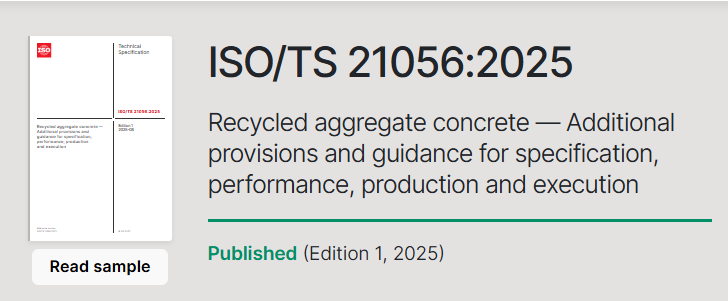In August 2025, the international standard ISO/TS 21056:2025 "Recycled aggregate concrete — Additional provisions and guidance for specification, performance, production and execution" was officially released. This standard was developed under the leadership of Prof. Xiao Jianzhuang(Vice President, Guangxi University & Professor, Tongji University).
This standard systematically specifies key technical requirements for recycled aggregate concrete, including material criteria, performance indicators, mix proportion design, production and construction control. It establishes an authoritative framework for the standardized and large-scale global application of recycled aggregate concrete, thereby strongly promoting the utilization of construction and demolition solid waste and advancing low-carbon development.
Prof. Xiao Jianzhuang has long been dedicated to researches on recycled aggregate concrete materials, structures, and construction technologies. He previously led the compilation of China’s first technical standard for recycled concrete application, Technical Standard for Application of Recycled Aggregate Concrete (2007), and over 50 other national standards, including the National Standard: Technical Code for Recycling of Construction and Demolition Waste. These experiences laid a solid technical foundation and provided exemplary experience for developing this ISO standard.

Over the years, Prof. Xiao’s team has implemented these standards in major projects such as post-earthquake reconstruction in Sichuan, the Shanghai World Expo, and the Pinglu Canal, validating the feasibility and safety of these technologies and offering robust practical support for the formulation of the ISO international standard.
The release of this ISO standard will further elevate China’s international influence in green building, drive the global construction industry toward resource efficiency and environmental sustainability, and provide critical technical support for achieving "zero-waste cities" and the "Dual Carbon" goals (carbon peak and neutrality).